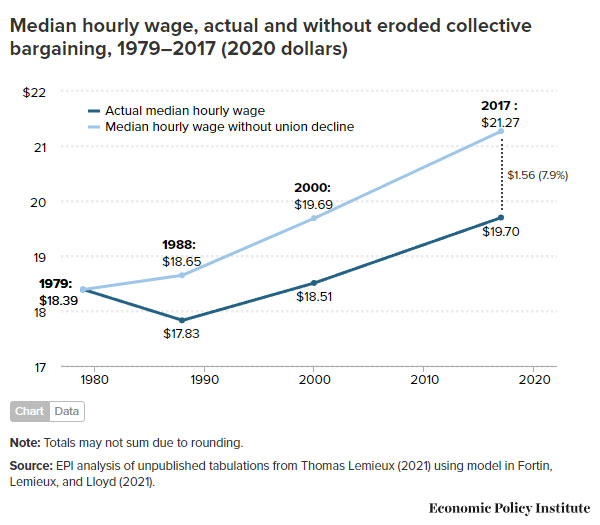
Workers in the brewing industry deserve more. When we come together and speak the truth to power, our collective voice can make for real change. Many brewery staff members face the same unfair treatment: unlivable wages, unsafe and uncomfortable working conditions, feeling unacknowledged and unrewarded, and burnout. The passion trap and saturated job market has allowed for an asymmetry of power and an unequal exchange of value between our labor and ownership.
The primary goal of the Connecticut Brewer’s Collective (CTBC) is to build a coalition of brewery workers to advocate for the dignity and respect of brewery workers, organize, and communicate our needs to ownership. Our ability to improve our positions and have our concerns addressed requires a strong, unified movement that transcends the many small breweries in Connecticut.
From the AFL-CIO:
“National Labor Relations Act clarified the bargaining rights of most other private-sector workers and established collective bargaining as the ‘policy of the United States.’ The right to collective bargaining also is recognized by international human rights conventions.”
“The freedom to form and join a union is core to the U.N. Universal Declaration on Human Rights and is an ‘enabling’ right—a fundamental right that ensures the ability to protect other rights.”


REALITY: YOU are the union. When you become aware of a problem, you become responsible for fixing it. Your union is not someone else's responsibility. Your union is an ongoing project, not finite or set in stone. Most unions are what are reffered to as rank-and-file organizations, meaning they are democratically organized where all members vote on issues and not some out of reach bureaucracy.
REALITY: Union dues vary from union to union and are usually around 1.5% to 3% of pay. However, the AFL-CIO notes that union workers wages are 11.2% higher on average than their non-union counterparts.
REALITY: No one wants to strike. In fact, 98% of union contracts are negotiated without strikes. You have the right to work if you want to that is protected by federal labor law.
REALITY: If the aspects of your jop that make you happy were eliminated tomorrow, would you know of any other options? Many workers see a chronic trend of things- like top-down decision making and diminished internal transparency- getting worse for even the best-treated employees. Having a union is about having practical solutions and supporting one another so that, when this downward trend affects us, we can work together to oppose it.
REALITY: Union contracts create a framework of progressive discipline, where performance management can take place with fair and systematic methods. Collective agreements include language involving discipline and termination. The fact is, you're just as likely to encounter poorly performing coworkers without a union as you are with one.
REALITY: Companies close for financial reasons, and nonunion companies account for the majority of these closures. However, some companies like to perpetuate this idea by unlawfully threatening to close down their business if employees try to organize a union. Research has indicated that unions can actually increase productivity and reduce turnover.